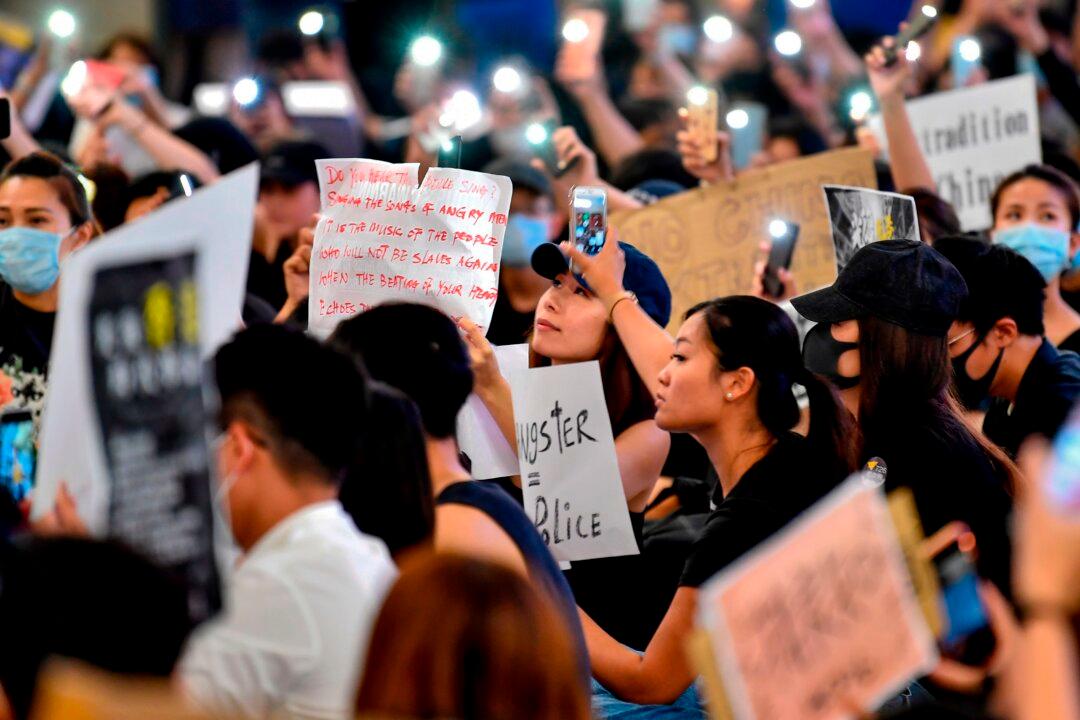Following a July 21 violent mob attack that targeted protesters who opposed a local extradition bill, a growing chorus of support for the protesters have emerged from different sectors of Hong Kong society, from the staff at government agencies to medical workers.
The Lead-Up
On July 21, dozens of masked men in white shirts attacked passengers inside a metro station in Hong Kong’s Yuen Long district, beating indiscriminately at passengers with wooden sticks and metal bars. Witnesses said the mob targeted people dressed in black, as protesters wore black clothing to a demonstration held earlier that day against an extradition bill that would allow individuals to be sent back to mainland China to stand trial.At least 45 have been hospitalized, one in serious condition. The police did not arrive on the scene until roughly an hour after people first made emergency calls. While police later made arrests for “illegal assembly” and have confirmed that some suspects had a “triad background,” no one has yet been charged with violence-related offenses.
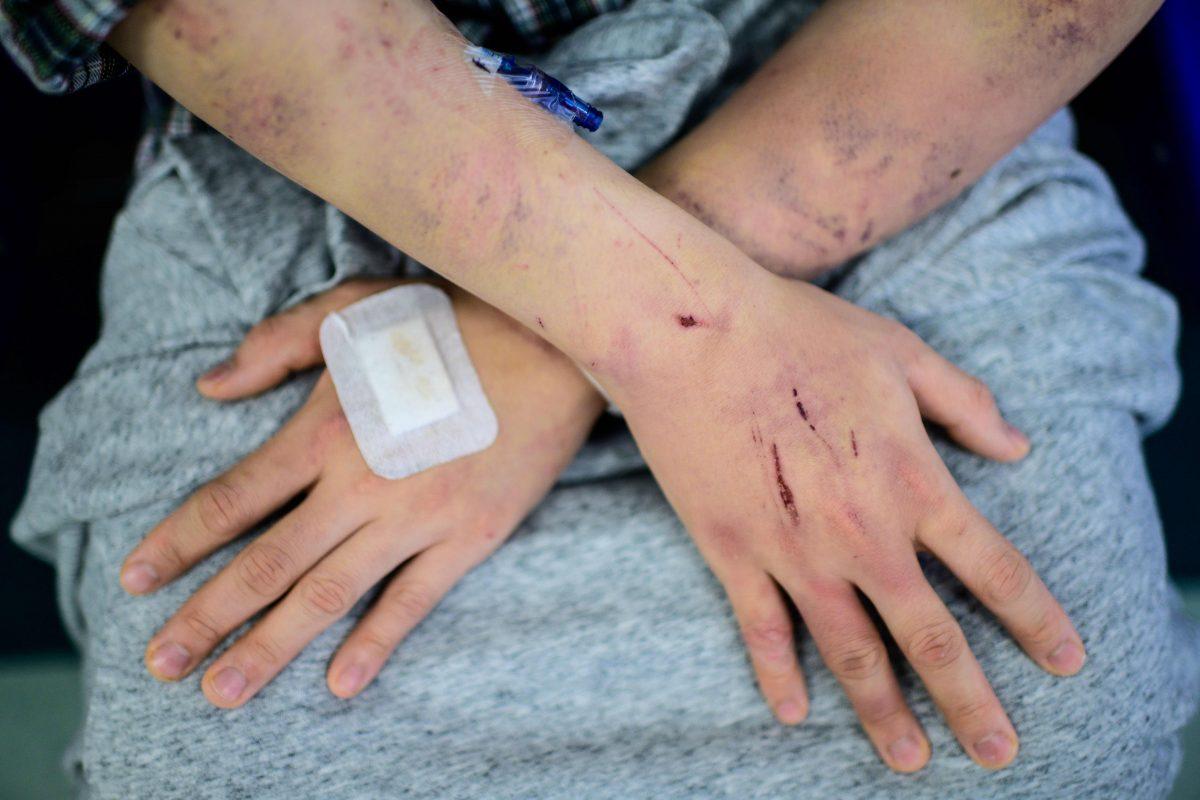
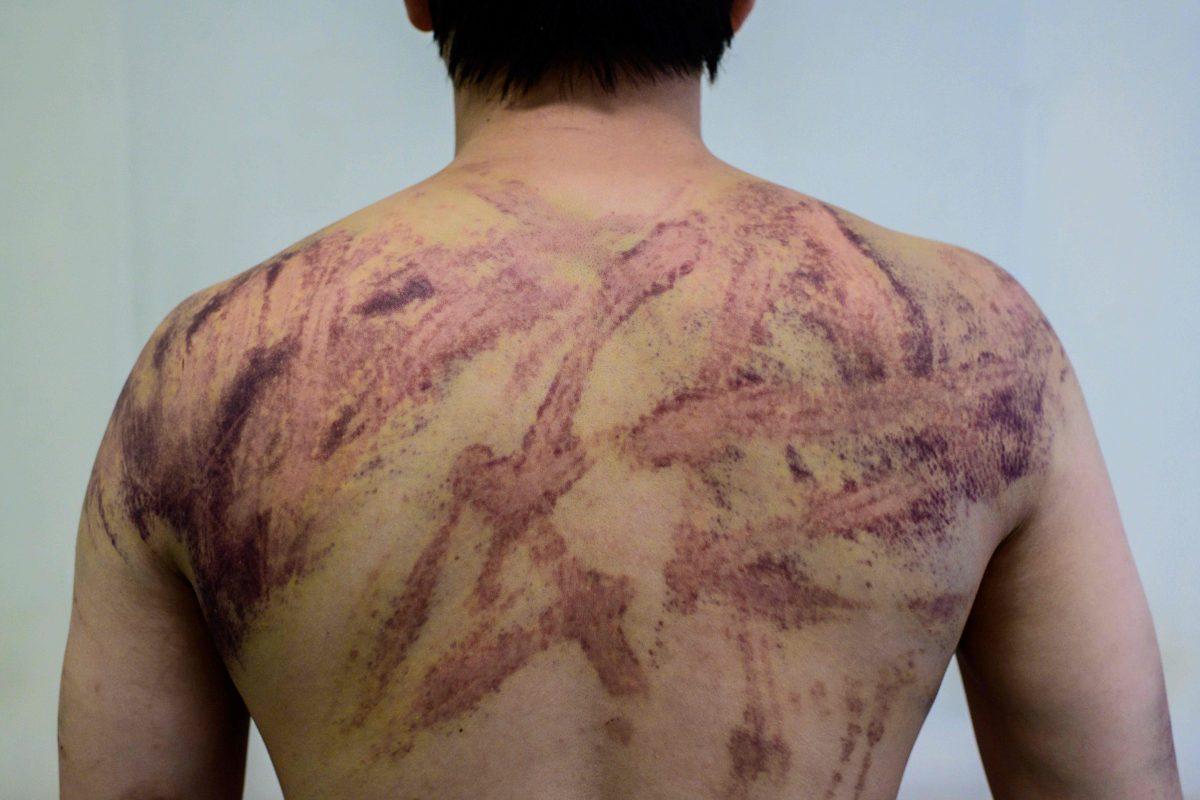
The delayed response has led to widespread criticism, with many Hongkongers suspecting collusion between police and triads, an accusation that the city’s top leader Carrie Lam and police chief Stephen Lo have denied.
Meanwhile in the Sheung Wan district that same evening, about an hour away by train from where the attack occurred, police had deployed 55 rounds of tear gas, five rubber bullets, and 24 sponge grenades to disperse protesters who had occupied a main thoroughfare, police confirmed at a press briefing on July 25.
Airport Sit-in
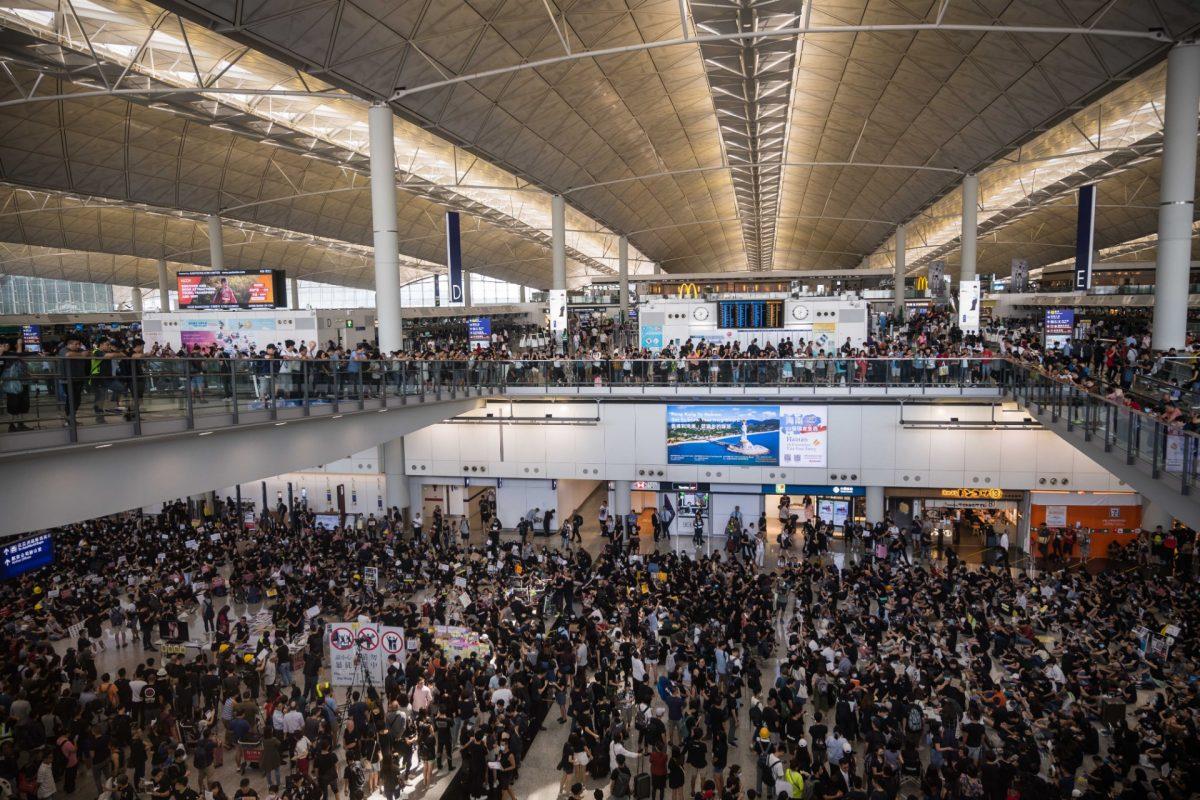
In recent days, the city has seen an outpouring of public anger toward the police, as video footage of bystanders being violently attacked have begun circulating online, while victims have publicly come forward with stories of their experience that night.
Wearing black T-shirts, the protesters held signs in English and Chinese warning travelers of personal safety risks—citing the government’s recent failure to respond promptly to the Yuen Long violence. Many handed out pamphlets in various languages, including simplified Chinese, English, and Korean. A large crowd gathered in the arrival hall shouting protest slogans.
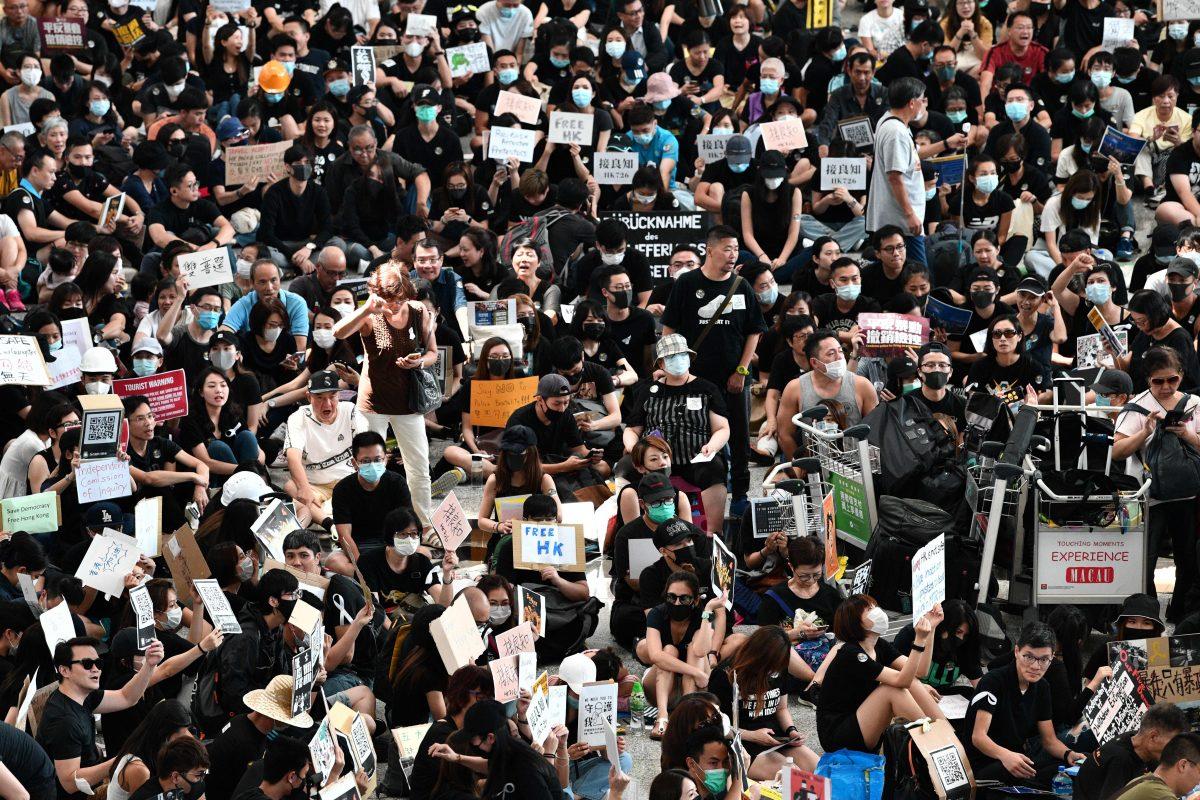
“We know that the safety of Hong Kong people should always be on the top of the economy. We will do what should be done,” the statement continued.

Government Officials
Public servants from at least 23 departments of Hong Kong government, including the department of justice, construction, customs, and law enforcement, have also drafted letters condemning their government’s handling of recent protests.In an anonymous petition on July 26, over 100 Hongkongers who held administrative officer positions at government agencies expressed their disappointment over the “dereliction of duty” and “blatant failure” of the government under Lam. They said that their duty as public servants compelled them to speak out.
“This summer in Hong Kong ... is a cardinal moment where we stand at the crossroads of right and wrong and we cannot remain silent,” the staffers said in the petition.
They urged Lam to make the right decision. “It takes the one who tied the bell to untie it,” they said.
Just two days prior, around 400 who hold executive officer positions within government agencies—or about one in nine, according to local media—issued a joint statement condemning the police for failing to protect citizens at Yuen Long. They posted their identification cards onto social media, covering their personal ID information with post-it notes that contained messages of support for protesters.
Trade Professionals
Meanwhile, workers from different sectors have also written letters and staged protests.Firefighters and paramedics said in a July 24 open letter to Hong Kong police that the delayed response to the Yuen Long violence was irresponsible and a “disregard of fellow colleagues’ personal safety.”
They were among the first responders who arrived at the metro station before the police. “We went to the scene hoping to rescue besieged citizens, but in reality, we had neither the training that police have to overcome the rioters nor the gears for it,” they said. “As fellow members of the disciplined services, we feel extremely ashamed.”
Some 1,500 public hospital workers rallied on July 26 in front of the Queen Elizabeth Hospital, one of the largest in the city, to condemn the Sunday attack.
A popular Hong Kong comic series, Teddy Boy, featured a depiction of the Yuen Long attacks on the cover of its July 25 issue, stating that they hope to use the artwork to record what happened and the “shameless” conduct of police.
Li Xiaojia, chief executive of the Hong Kong stock exchange and member of a political advisory body for the Beijing government called the Chinese People’s Political Consultative Conference, also gave a rare public comment about the protests.
He said he had largely refrained from being vocal on political affairs as a business person, but felt obliged to do so under the current situation.
“I hope that our … freedom of the press, speech, assembly, and protest could last, that our open society could last, and that our rule of law could last,” Li told The Epoch Times’ sister media NTD Television. Li was responding to veiled threats made by a spokesperson for China’s Ministry of National Defense, who said on July 24 that the Chinese army could be mobilized to help the Hong Kong government “maintain stability.”
Li said: “We Hong Kong people [can] take care of our things. Let Hongkongers rule Hong Kong.”
Citing safety concerns, police have canceled a planned protest in Yuen Long and rejected an application for a July 28 protest in Sheung Wan. Protesters have made online comments saying they plan to show up nonetheless.
Police also set time restrictions for a July 28 protest in Central, a busy business district.
